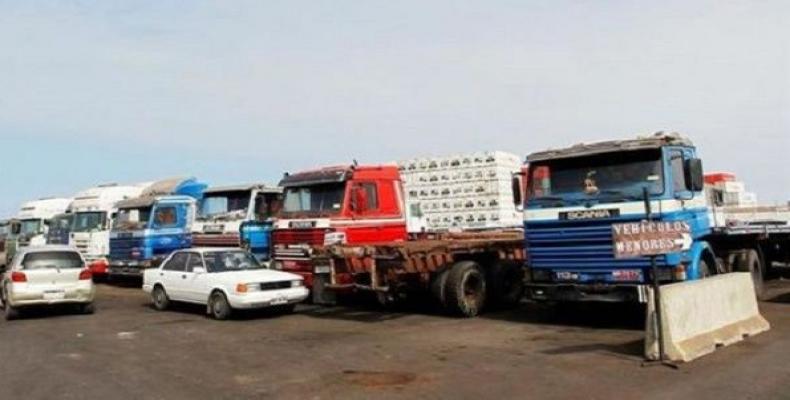Brasilia, August 3 (RHC)-- Groups of truck drivers have blocked Brazil’s highways in protest of a gas tax hike decreed by the government of Michel Temer. The Brazilian port of Santos, southeast of Sao Paulo and the largest port in Latin America, was paralyzed from 6 a.m. local time to late afternoon yesterday. Some 4,000 drivers blocked the area with their trucks, according to the Union of Carriers of the Baixada Santista.
State-run Agencia Brasil reported that besides San Paulo, the blockades were also carried out throughout the day in Minas Gerais, Bahia and four other states. The strike, coordinated through social networks, was supported by the National Union of Truckers and other organizations to protest the rise in fuel prices as well as Temer's neo-liberal economic policies.
"It is absurd that new rules are always imposed on truckers, but without respecting the laws in force in the sector, many of them the result of our continuous struggle," Unicam president Jose Araujo said in a statement.
Last week, a Brazilian court allowed the government to raise federal PIS/Cofins social contribution tax on gasoline, diesel and ethanol. As a result, diesel prices jumped about six cents per liter.
The Brazilian Association of Truck Drivers indicated that drivers would need to increase their freight rates by five percent to cover the rising fuel prices, but it is difficult to do so because of the drop in demand for their services.
Brazilian Truck Drivers Block Roads Against Hike in Gas Prices

Related Articles
Commentaries
MAKE A COMMENT
All fields requiredMore Views
- Cuba to play women's soccer friendlies against Peru
- Artistic swimmers prepare for continental competition
- President Nicolas Maduro rejects Marco Rubio's threats against Venezuela
- Russian minister says BRICS to establish digital payment system for members
- Ibero-American Criminal Sciences event comes to a close in Cuba

